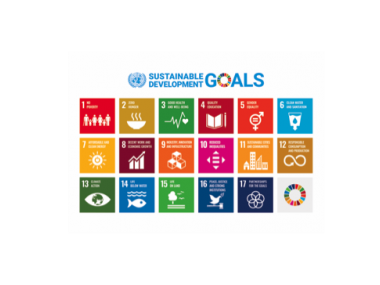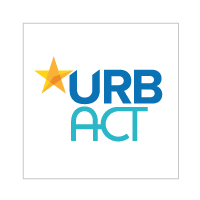URBACT launches a SDG network!
Edited on
24 June 2021A pilot network of cities localising Sustainable Development Goals in partnership with CEMR.

There is an urgency for action at local level for the UN 2030 Agenda. 2030 is not so far away and URBACT new network on localising the UN Sustainable Development Goals(link is external) will play an important role in accelerating the process. Over almost a 2-year period, the URBACT programme, in partnership with CEMR(link is external), will support 19 cities of different sizes to learn from each other to reach the development goals for sustainable cities.
‘SDGs in Cities’ – the ambition
Following URBACT and CEMR(link is external)’s early announcements this year, the network on localising the UN Sustainable Development Goals was approved by the URBACT's Monitoring Committee on 9 March 2021.
The main objective of the network is for the pilot cities to exchange with each other and with other European and International peers, build capacities towards the localisation process of the UN Sustainable Development Goals (SDGs) in their territories, and develop tools for localising the SDGs. The network also aims to strengthen synergies between URBACT, CEMR, EU & international organisations in pursuit of the same goals.
The method
This network will support a group of 19 EU cities using the URBACT method(link is external) of integrated and participatory action learning to support cities through following phases:
- Activation (March-April 2021)
- Diagnosis (May-July)
- Visioning (August-November 2021)
- Planning of actions (December 2021- May 2022)
- Fixing indicators and finalising the IAPs (June 2022 – mid-November 2022)
- Finale (mid-November/December 2022)
The first stage will focus on diagnosis and visioning to help the cities identify where they are now and where they would like to be in relation to the localisation of SDGs. The second stage will focus on how to get where they want to be through co-designing actions, setting up a results framework, finalising their action plans and preparing for implementation.
The network will provide opportunities for partners to learn how to use the RFSC self-assessment tool(link is external) in the SDG localisation process throughout the project, from translating the SDGs to local context, identifying priorities and visualising to mapping local actions and implementing an SDG monitoring system.
Several other tools and methods will be used from the URBACT Toolbox as well as from other external sources. Local awareness raising actions will also be designed to engage with local stakeholders and set up a strong URBACT Local Group.
At local level, each city will set up an URBACT Local Group (ULG) and produce an Integrated Action Plan (IAP) with their ULG.
At network level, the Lead Expert will produce a Baseline Assessment and some key outputs either linked to the method and action planning stages or to the content related to themes or city stories.
The partners
Led by the city of Tallinn, the network brings together a well-balanced and diverse partnership:
Lithuania | Klaipėda |
Germany | Solingen |
Italy | Reggio nell'Emilia |
Estonia | Tallinn (LP) |
Netherlands | Schiedam |
Belgium | Mouscron |
Portugal | Braga |
Ireland | Trim |
Croatia | Ozalj |
Slovakia | Bratislava |
Greece | Heraklion |
Czech Republic | Jihlava |
Spain | Manresa |
Poland | Dzierżoniów |
Hungary | Veszprém |
United Kingdom | Glasgow |
France | CdA La Rochelle |
Sweden | Gävle |
Bulgaria | Veliki Preslav |
The 19 cities involved in this network have all individually demonstrated a considerable motivation to consider the localisation of the SDGs in a systematic way. The partners cover 19 different countries and are of varying size and nature (metropolitan areas, capital cities, small/medium sized cities, shrinking cities etc.). By comparing the different realities in these cities through the richness of this diversity it will be possible to share many different ideas and solutions to this important challenge. The results will also be relevant for a very wide audience outside of the network.
As foreseen in the work plan, Lighthouse Cities from the EU and from the Eastern Partnership (EaP) region together with cities from the global south will be invited to webinars or meetings to provide direct input and feedback.
There will be many opportunities in the upcoming months to share the results with a wider audience, including during the High-Level Political Forum on Sustainable Development(link is external) in July 2021, the European Week of Regions and Cities(link is external) in October 2021, COP26(link is external) in November 2021, or the World Urban Forum 11(link is external) in June 2022.
-
The network Kick-off meeting will happen over three sessions on 13, 14 and 21th April 2021.
Keep an eye out for updates!
 Submitted by URBACT on
Submitted by URBACT on
